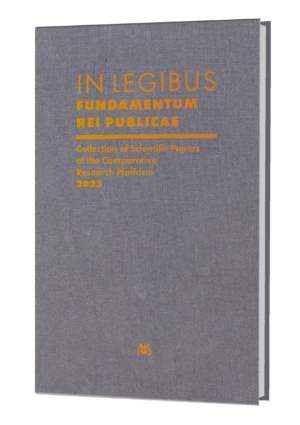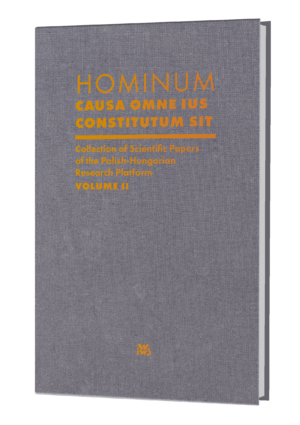In the interwar period, Czesław Martyniak, Fr. Antoni Szymański, and Ignacy Czuma worked at the newly established Catholic University of Lublin, basing their scientific activity mainly on the Thomistic tradition in the philosophy of law and referring to it in taking up criticism of the then influential trends: the legal positivism (especially as developed by Hans Kelsen, who was considered to be the creator of its normative variety) and solidarism (treated by many authors of those times as a proposal for the critics of positivism, referring to “social facts” rather than to the norms of the natural order). Limiting this introduction to an attempt to make the reader interested in the context of heritage and fundamental issues of the philosophy of law, we will only point out that the content of the statements of the abovementioned authors had mainly polemical value. This does not mean, however, that apart from the critical arguments, we will not find an outline of a positive position in their writings. They undoubtedly demonstrate the importance of the need to establish a universal “species goal” and thus to indicate a certain, appropriate and purposeful structure of action for all people, as one that for many centuries has defined an essential aspect of the philosophy of law. They see that questioning this orientation (together with the negation of a realistic position which treats the human species as a real existence, a kind of participation in every human being) has opened up a perspective for new approaches, for the differentiation of norms within every political community and for the search of justifications for those who take part in the creation of the legal order. They are aware that the classical structure of reflection on the law, present already in the Renaissance thought, has been replaced by another: the reflection on the universal purpose of the human species has been taken over by reflection on the multiplicity of objectives of the individual and the search for a guarantee of their realisation, sometimes taking into account the objectives of the state as a particular kind of being, which is to some extent independent of the existence (and objectives) of its constituent individuals. They know that this approach was the result of a particular type of intellectual evolution that had taken place in European culture since around the 13th century, leading to a gradual shift of interest from the order of all things to the projects of individuals. They reach directly to St. Thomas Aquinas and analyse the foundations of the normative order, which at least sets a negative limit to the ability of individuals and legislators to act, as well as to the content of established norms.










